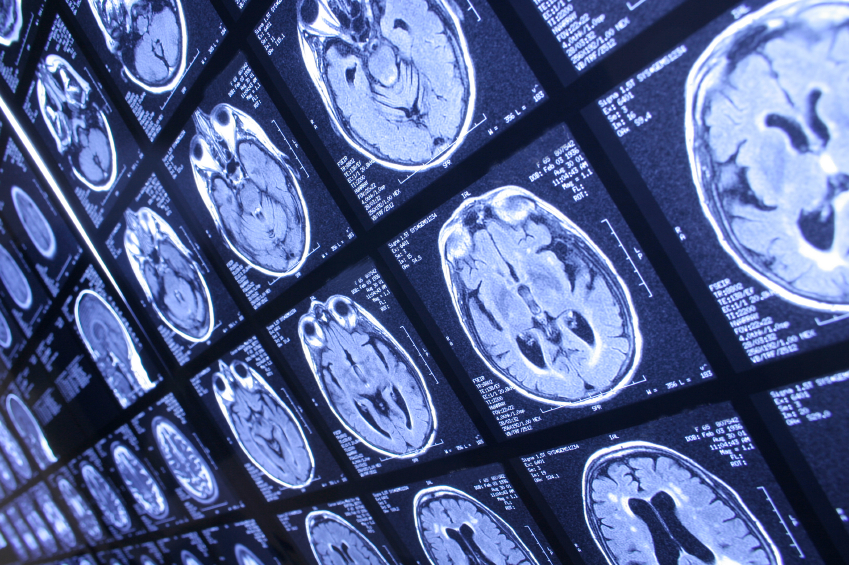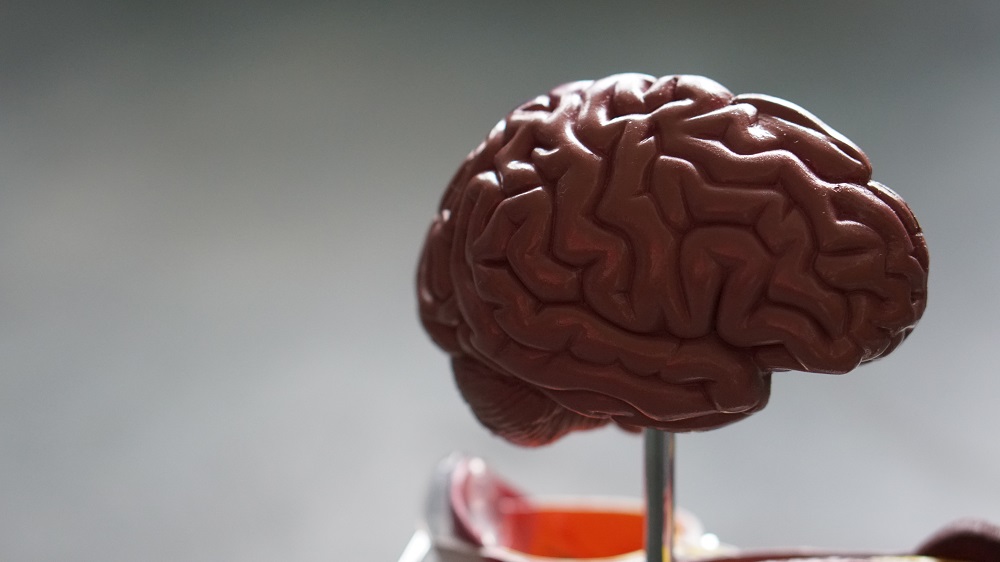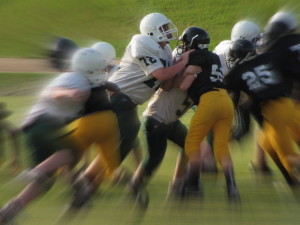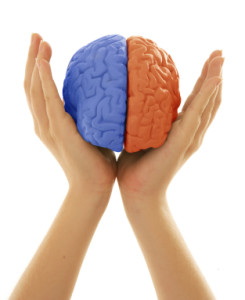The Symptoms and Long-Term Implications of a Brain Injury

Traumatic brain injury causes significant long-term problems. The human body has a remarkable capacity to recover, but brain tissue will not heal itself, and there are currently no medical treatments to regenerate damaged brain tissue.
A Concussion Is a Serious Injury
 Although a concussion is often referred to as a minor injury, it can often have serious and far-reaching implications for victims. The tendency to shrug off a concussion leaves people vulnerable to potentially harmful long-term effects. It is crucial to seek medical attention right away if you have suffered a concussion. Physicians often say that a minor brain injury simply does not exist.
Although a concussion is often referred to as a minor injury, it can often have serious and far-reaching implications for victims. The tendency to shrug off a concussion leaves people vulnerable to potentially harmful long-term effects. It is crucial to seek medical attention right away if you have suffered a concussion. Physicians often say that a minor brain injury simply does not exist.
TBIs and Speech Problems
 Almost every process in our body, from how we view colors to our breathing patterns, is determined by our brain. This single organ handles so many different aspects of our everyday life, that we often take it for granted. That is why traumatic brain injuries (TBI) can be so devastating. Beyond sometimes being fatal, they can also unsuspectingly influence our basic functions, including our ability to speak. It is not uncommon for victims of head injuries to suffer from stutters or slurred speech after an accident.
Almost every process in our body, from how we view colors to our breathing patterns, is determined by our brain. This single organ handles so many different aspects of our everyday life, that we often take it for granted. That is why traumatic brain injuries (TBI) can be so devastating. Beyond sometimes being fatal, they can also unsuspectingly influence our basic functions, including our ability to speak. It is not uncommon for victims of head injuries to suffer from stutters or slurred speech after an accident.
Mind Over Body: The Psychological Effects of a TBI
 Traumatic brain injuries (TBI) are disruptions in the normal function of the brain caused by trauma. A TBI can be the result of a blow or jolt to the head, or a penetrating head injury, such as a bullet wound. Severe TBI can dramatically affect the way the body functions, including mobility, memory, and cognitive ability. But it can also significantly impact a victim’s psychological and emotional health, both of which can be included in a claim for damages.
Traumatic brain injuries (TBI) are disruptions in the normal function of the brain caused by trauma. A TBI can be the result of a blow or jolt to the head, or a penetrating head injury, such as a bullet wound. Severe TBI can dramatically affect the way the body functions, including mobility, memory, and cognitive ability. But it can also significantly impact a victim’s psychological and emotional health, both of which can be included in a claim for damages.
Which Car Crashes Cause Traumatic Brain Injury?

Motor vehicle crashes are the leading cause of traumatic brain injury (TBI) nationwide. Despite this fact, most of the research conducted on TBIs has been focused on sports-related injury, or injuries suffered by members of the armed forces. However, a new research project being conducted by the University of Arizona’s College of Engineering is looking to create a tool that can calculate the likelihood of someone getting a TBI after different types of traffic collisions.
Who Can I Take Legal Action Against for a New York Brain Injury?
Victims of brain injuries endure not only physical challenges as a result of those injuries, but also significant financial burdens in the form of expenses for medical care, nursing, and rehabilitation. It is common for families to go into debt to help pay for a loved one’s treatment and care in the aftermath of a traumatic brain injury.
Some of the most common causes of brain injuries in New York City are auto accidents, pedestrian accidents, slip-and-fall accidents, and physical assaults. When a brain injury is caused by someone else’s negligence or wrongdoing, the at-fault individual or entity can be held liable for the victims’ injuries, damages, and losses. Plaintiffs in such cases must show that the at-fault party’s negligence or wrongdoing caused or contributed to their brain injuries.
Here are a few examples of injury accidents that can result in brain injury:
Frank Gifford Diagnosed with CTE Brain Injury
 In August 2015, legendary football player Frank Gifford died at the age of 84. According to a New York Daily News report, Gifford suffered from the affects of head trauma long after he retired. He’s now the oldest ex-NFL star to be diagnosed with chronic traumatic encephalopathy (CTE).
In August 2015, legendary football player Frank Gifford died at the age of 84. According to a New York Daily News report, Gifford suffered from the affects of head trauma long after he retired. He’s now the oldest ex-NFL star to be diagnosed with chronic traumatic encephalopathy (CTE).
CTE is a brain disease that can only be diagnosed after death. According to Boston College researchers, 87 of the 91 former NFL players they have tested suffered from CTE.
Types of Rehabilitation for Victims of Traumatic Brain Injury
 A traumatic brain injury (TBI) can happen anytime someone suffers a hard bump, jolt or blow to the head. A TBI occurs when an injury, caused by incidents such as car crashes or slip-and-fall accidents, disrupts the normal function of the brain. While some victims of TBI only sustain mild injuries that heal within days, others experience severe long-term or even permanent symptoms. For these victims, rehabilitation will be needed to lessen health problems and cope with new physical limitations.
A traumatic brain injury (TBI) can happen anytime someone suffers a hard bump, jolt or blow to the head. A TBI occurs when an injury, caused by incidents such as car crashes or slip-and-fall accidents, disrupts the normal function of the brain. While some victims of TBI only sustain mild injuries that heal within days, others experience severe long-term or even permanent symptoms. For these victims, rehabilitation will be needed to lessen health problems and cope with new physical limitations.
There are many types of rehabilitation that are needed following a serious TBI because a brain injury can affect you in so many different ways. Victims of brain trauma have their ability to walk, talk and think impaired by their injuries. The right type of rehabilitation plan must be created to fit the unique symptoms of each patient.
Study Finds that Girls May Experience Concussion Differently than Boys
Parents, teachers, and coaches whose student-athletes have suffered a concussion know that the symptoms can linger for weeks or months after the initial injury. But a new study suggests that the symptoms girls face after a concussion can be very different from the symptoms boys face.
The study, published in the journal PLOS ONE, followed over 9,000 Ontario teenagers who had suffered traumatic brain injuries (TBI). Researchers asked the teens to describe their behavior and moods after the concussion occurred.
Concussions in Student-Athletes: Know the Signs
 The start of the new school year means students throughout New York will be back on the practice field and in the gym, working on their athletic skills and dreaming of a championship trophy. Parents, teachers, and coaches all have a role to play in keeping athletes healthy and protecting them from injury.
The start of the new school year means students throughout New York will be back on the practice field and in the gym, working on their athletic skills and dreaming of a championship trophy. Parents, teachers, and coaches all have a role to play in keeping athletes healthy and protecting them from injury.
According to the Centers for Disease Control and Prevention (CDC), sports are the number-one cause of concussions in children ages 10-19. Because a concussion can cause long-term damage to kids’ ability to grow and learn, knowing the signs and getting adequate medical treatment for an injured player are crucial steps to take if a concussion is suspected.